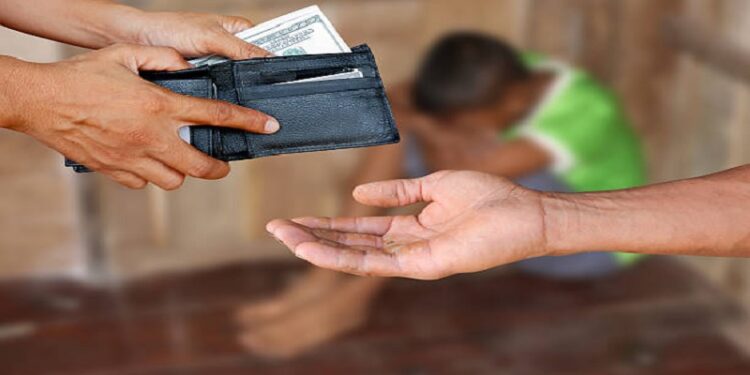By Ragheema Mclean
The A21 campaign, the non-governmental organisation (NGO) managing South Africa’s human trafficking hotline, has raised concerns over the increasing prevalence of human trafficking in the country, particularly in the Western Cape.
This issue has come to the forefront amid the ongoing search for six-year-old Joshlin Smith from Saldanha Bay, who went missing on February 19 while in the care of her mother’s boyfriend in Middelpos.
Joshlins mother, Kelly Smith and her boyfriend Jacquin Appollis have since been arrested along with two other suspects and charged with kidnapping and human trafficking.
Speaking on VOC Breakfast on Friday, criminologist Simon Howell, highlighted the challenges in understanding the extent of human trafficking in South Africa.
“The main problem with comparing South Africa to other countries is that very little is known on human trafficking in SA. Primarily, human trafficking occurs around sex tourism and the use of people in domestic servitude and service-based sector jobs.”
Howell also mentioned that women and children are mostly trafficked into South Africa from other African countries.
“One of the key challenges in combating human trafficking in South Africa is the legal system’s focus on crimes such as rape, sexual assault, and abductions, rather than specifically on human trafficking. This makes it difficult to gather accurate statistics on the issue.”
He said that while parents trafficking their children is more common in other African countries, it does occur in South Africa.
“People are resorting to these extremes for several reasons, the underlying issues include socio-economic, poverty and the need for income. That allows them to be easily exploited by human traffickers.”
“Although the Joshlin Smith case is not the first case that has happened in SA, parents have a duty and responsibility to their children and unfortunately in this case that has failed.”
Furthermore, he said that trafficking often occurs from countries like Lesotho, Mozambique, Malawi, and Zambia in Southern Africa, and from Ghana and Nigeria in West Africa.
“These are the primary hubs for the source of people being trafficked. People are usually trafficked from low-income countries to predominately economically high-income countries.”
Regarding police intervention, Howell stressed the need for a more localized approach to combating human trafficking in South Africa, rather than solely relying on international protocols.
“There isn’t that much that we can go on, police will obviously respond to these crimes but rather as other crimes like rape or abduction not specially in terms of human trafficking.”
“We need to be more locally focused on terms of human trafficked, not just simply signatory to international protocols. We need to have our own framework in place for dealing with this more effectively,” he added.
VOC News
Photo: Pexels






 WhatsApp us
WhatsApp us 

